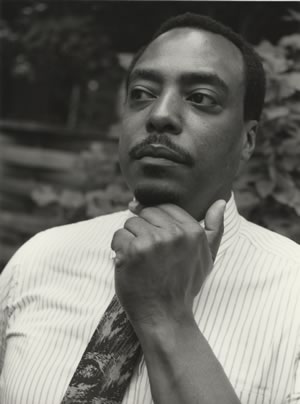Earnest Gates
In the summer of 1996, during Chicago’s extended heat wave, the residents of the West Haven neighborhood moved out of their overheated homes to sleep in the Toughy Herbert Park. A decade before, the park in the poverty-ridden Near West Side of Chicago had been a dangerous jungle of weeds, abandoned cars, and broken glass. Now this same park is a comfortable expanse of green grass and freshly painted benches. Earnest Gates is one of the principal people responsible for the transformation of the newly named “West Haven” neighborhood. “People were comfortable enough to leave their homes. They used to be terrified of the park, and would rather stay in their houses and sweat. When I think about all those neighbors choosing to sleep in the park, my chest swells. There’s no feeling that can match that.” Earnest Gates, through his leadership and negotiation, has restored the hope of the neighborhood and worked relentlessly to transform it into a stable working-class community. It’s no wonder that his chest swells with pride.
After Martin Luther King Jr. was assassinated in 1968, families began to move out of the predominantly black and rapidly deteriorating Near West Side neighborhood. Earnest found himself eager to leave the neighborhood where he grew up as one of six children. “I was looking for bigger and better things,” he remembers, “and I then thought: ‘What are you doing? You’re no different than anyone else. You’re running out of the neighborhood and it won’t get better if you continue to run away.'” Earnest stayed and rehabilitated his house. Then he turned to his block, until it was transformed, building by building and lot by lot.
In 1987, the Near West Side became prime real estate when the city government and major developers decided to build a new sports complex for the Chicago Bears. Earnest Gates joined forces with the Interfaith Organizing Project, a coalition of churches, to prevent the developers from leveling the neighborhood and displacing the residents. Earnest insisted that the community residents receive an economic development package that included retail stores, commercial businesses, housing, medical facilities, and employment opportunities for the community. The community united to block the government/developer coalition and prevented them from replacing their homes with the fifty yard line.
In 1990, as part of the negotiated settlement of a similar confrontation, the Chicago Bulls and Blackhawks agreed to build the United Center Stadium on the edge of the Near West Side. As part of the plan, the developers invested in the economic, residential, and retail development of the newly-renamed West Haven. They built 141 new houses on formerly vacant and abandoned lots. The city also invested $2.5 million in infrastructure for the eight-square-block area and the Bulls and the Blackhawks allocated $600,000 for more new homes. Public housing units were dispersed throughout the neighborhood to discourage unbridled gentrification. Seniors will occupy 101 of the units of a new project. When Denis Rodman was fined for swearing on television, the Chicago Bulls donated the $158,000 to help West Haven repair more houses for the elderly.
West Haven also has a new public library, a new Boys and Girls Club, a new park, and two remodeled elementary schools. The neighborhood has recruited law enforcement professionals as homeowners. Crime rates have dropped below the city’s average. Private investments are trickling in. In 1996, the first bank in 40 years opened a branch in West Haven. A Walgreen’s drugstore will arrive in 1999. Intensive landscaping—along sidewalks, streets, and paved alleys—has made the neighborhood a more attractive place to live.
Earnest found that “poor people don’t understand their condition. The leadership and the bureaucrats keep the information away from poor people and don’t allow them to make informed choices.” To replace ignorance with empowerment, Earnest and the local Central West Community Organization hold meetings twice a month in the library to keep the neighborhood informed.
In 1978, Earnest started E. Gates Trucking with two employees. In 1998, Earnest’s company provides 35 jobs in a neighborhood where fifty-five percent of the people live below the poverty line. As an employer, he pours his efforts into a job readiness program and into finding good housing and services for welfare recipients. “It’s not enough to build housing,” he explains. “Most people think you can just throw the poor in a house and that will solve their problems. That’s like putting a Band-Aid on a heart attack.”
Despite the turmoil caused by the transformation of West Haven, all of the senior citizens are “still here,” Earnest proudly notes. He has gained strength from their courage and their faith that the community would change for the better. “It’s embarrassing to not do your best, knowing what’s gone before you, what’s at stake,” Earnest Gates explains. “If they put their future in your hands, you can’t treat it lightly.”
 Photo by Dorothea von Haeften
Photo by Dorothea von Haeften